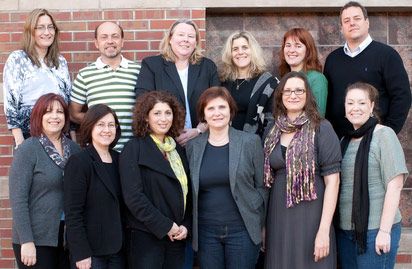Institute Regional Consultants Convene in Los Angeles to Discuss Next Stage for its International Visual History Program

In attendance are Martin Šmok, the Institute’s Senior International Program Consultant from the Czech Republic; Andrea Szőnyi from Hungary; Monika Koszyńska from Poland; and Anna Lenchovska from Ukraine. Also participating in the workshop is Oleksandr Voytenko, an educator from Ukraine who authored Encountering Memory, a curriculum supporting the documentary film Spell Your Name, produced in collaboration with the Institute and the Viktor Pinchuk Foundation.
The International Master Teacher Program will conduct two workshops, the first scheduled for the summer of 2012 in Prague. Identifying educators in the Czech Republic and Ukraine, the workshops will provide them with the necessary tools to meet a critical need to advance digital literacy skills for their students.These master teachers also will act as teacher trainers, reaching an estimated 600 teachers in those countries. Bringing this program to the territories on which the Holocaust occurred will enable educators to develop relevant localized materials, to speak to students about events that affected members of their communities, and to integrate meaningful material into their classrooms while also addressing the contemporary issues facing students in Central and Eastern Europe today.